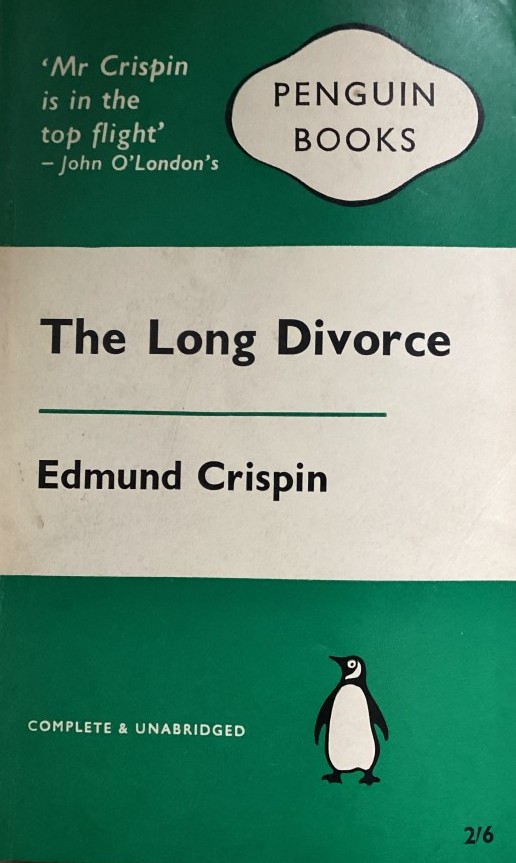Inspiring Older Readers
 posted on 09 Jun 2024
posted on 09 Jun 2024
The Long Divorce by Edmund Crispin
I’ve written extensively about the work of Bruce Montgomery (aka Edmund Crispin) elsewhere on this site (here, here and here) and this instalment from 1951 was intended as the last appearance of the academic-cum-detective, Gervase Fen. This intension held for over twenty years until the release of Glimpses of the Moon in 1977, which was indeed the finale.
For the majority of The Long Divorce, Crispin’s amateur sleuth appears only briefly and then in disguise as Mr Datchery, a visitor to the small village of Cotton Abbas in the employ of Mass Observation, a social research project that ran through the Forties and Fifties. But, in fact, what has brought Fen is an outbreak of cruel and unpleasant anonymous letters – one of which will lead to the suicide of a central figure in the mystery.
What is especially interesting about The Long Divorce is that the murder mystery sits within a story that has a social issue at its heart. Cotton Abbas is not a happy place and it’s not just the outbreak of poison-pen that is causing the problem. This is a village that’s dealing with an early example of ‘incomers’ – new residents who have no roots in the community. There’s a bluff, bullying Northern industrialist, his daughter, two new doctors, a police detective and an elderly friend of the incoming woman doctor who will become central to the resolution of the mystery. All of them bring with them different and possibly urban and more worldly baggage.
Fen stays in shadows as the ‘evidence’ for what is happening in the village seems to be slowly trapping one of the doctors in a web of suspicion – although Crispin is clearly signalling to us that he’s selling us duff information. It’s not until Fen steps back in at the last moment that we start to see where the various red herrings have been placed. Crispin uses the formula much loved by Agatha Christie and her sleuths of bringing all the key players together in a room and then taking them forensically through the evidence and revealing the real criminal at the heart of it all.
It’s almost impossible to describe any of the details of the storyline without inadvertently tossing in spoilers that will affect your reading pleasure – so I won’t. But what I will say is that this book would have made an excellent final outing for Gervese Fen because all of the characteristics that make Crispin’s books so appealing are there in spades – humour, jeopardy, an absurdly complex plot and just a dash of social commentary. It’s also true that, as a character, Gervase Fen feels as if he’s reached the limits of his credibility and the energy of the book does dip until the sleuth whisks off his ‘disguise’ and does his thing in the last third.
I’m always happy to turn to Crispin for a witty ‘cosy crime’ caper and if you haven’t read him yet, start with the earlier ones and work your way to this finale.
Available easily enough online in various paperback reprints.
Terry Potter
June 2024